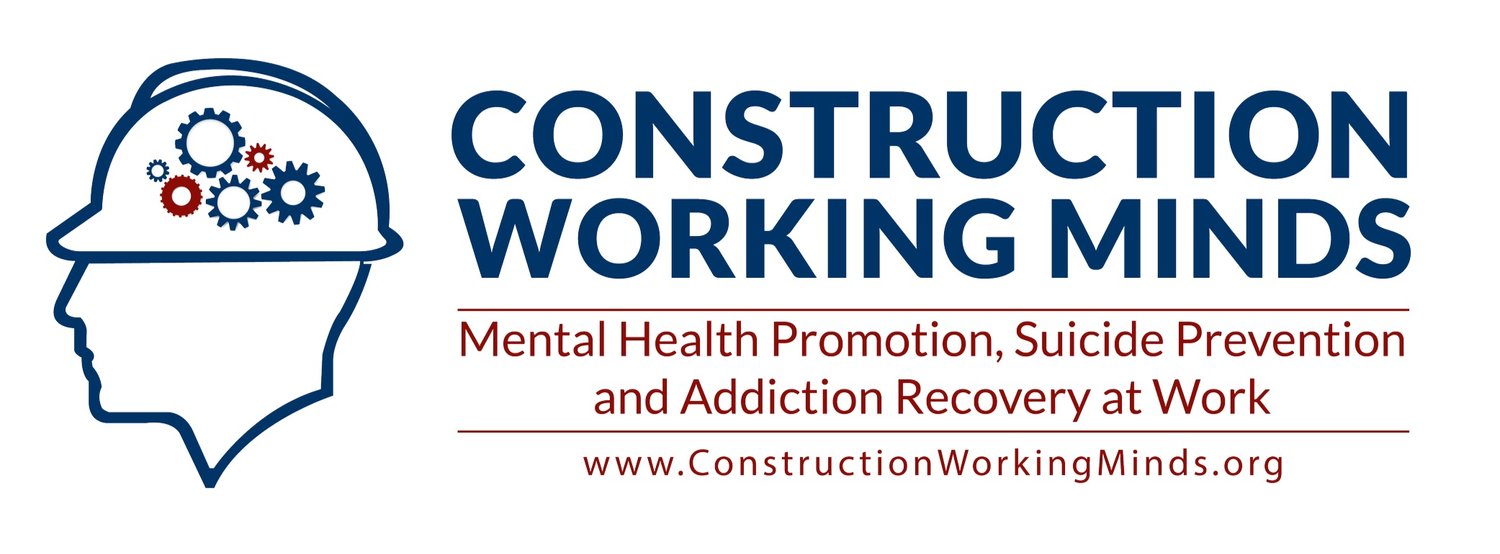About Construction Working Minds™
Overview
Complex public health problems like suicide are best addressed with comprehensive and sustained approaches that address issues from several angles and through multiple systems. The Construction Working Minds program is an evidence-informed model that uses strategic partnerships and capacity-building in the workplace to leverage and sustain significant change for positive mental health and resiliency. Together, working collaboratively with several national partners, Dr. Sally Spencer-Thomas, United Suicide Survivors International, and the Johnson Depression Center help construction companies and professional associations build strategies for suicide prevention, mental health promotion and resilience.
Workplaces Called to Action by the Surgeon General
Just as schools are the venue for youth suicide prevention training, workplaces provide the most accessible opportunity for mental health promotion and suicide prevention for working-aged adults. The Surgeon General’s National Strategy for Suicide Prevention (2012) specifically targets employers as critical stakeholders in the prevention of suicide and suggest that businesses and employers can:
Implement organizational changes to promote the mental and emotional health of employees
Ensure that mental health services are included as a benefit in health plans and encourage employees to use these services as needed
Train employees and supervisors to recognize coworkers in distress and respond appropriately
Ensure that counselors in an employee assistance program (EAP) are well equipped to assess and manage suicide risk
Ensure that mental health services offered to employees include grief counseling for individuals bereaved by suicide
Evaluate the effectiveness of workplace wellness programs in reducing suicide risk
Working-Aged Men Most at Risk for Deaths of Despair
Of the almost 50,000 people who die by suicide every year, about 75% are working aged men. Men in their adult years, from their early 20s through their 50s, account for the bulk of suicides and the majority of years of life lost due to suicide. Therefore, industries that are male dominated tend to have more suicides that industries that have a gender balance or are predominantly female. When workplaces also have increased exposure to heightened stress, untreated mental illness, trauma, violence, substance abuse, and access to lethal means, the risk of mental health crises and suicide becomes even greater. Employees in construction are exposed to this increased risk, and would benefit from comprehensive and sustained programming to educate them about resiliency and mental health and support their mental wellness throughout their careers.
More on “Deaths of Despair” and working aged men:
Deaths of Despair: Employers Can Help:
The Forces Driving Middle-Aged White People's 'Deaths Of Despair’ (NPR):
Deaths of despair: America’s rising suicide rate, Research suggests that poor, white men may be particularly at risk (The Economist):
SUPPORT & PARTNERS:
Website supported by:
Proud partner of:












